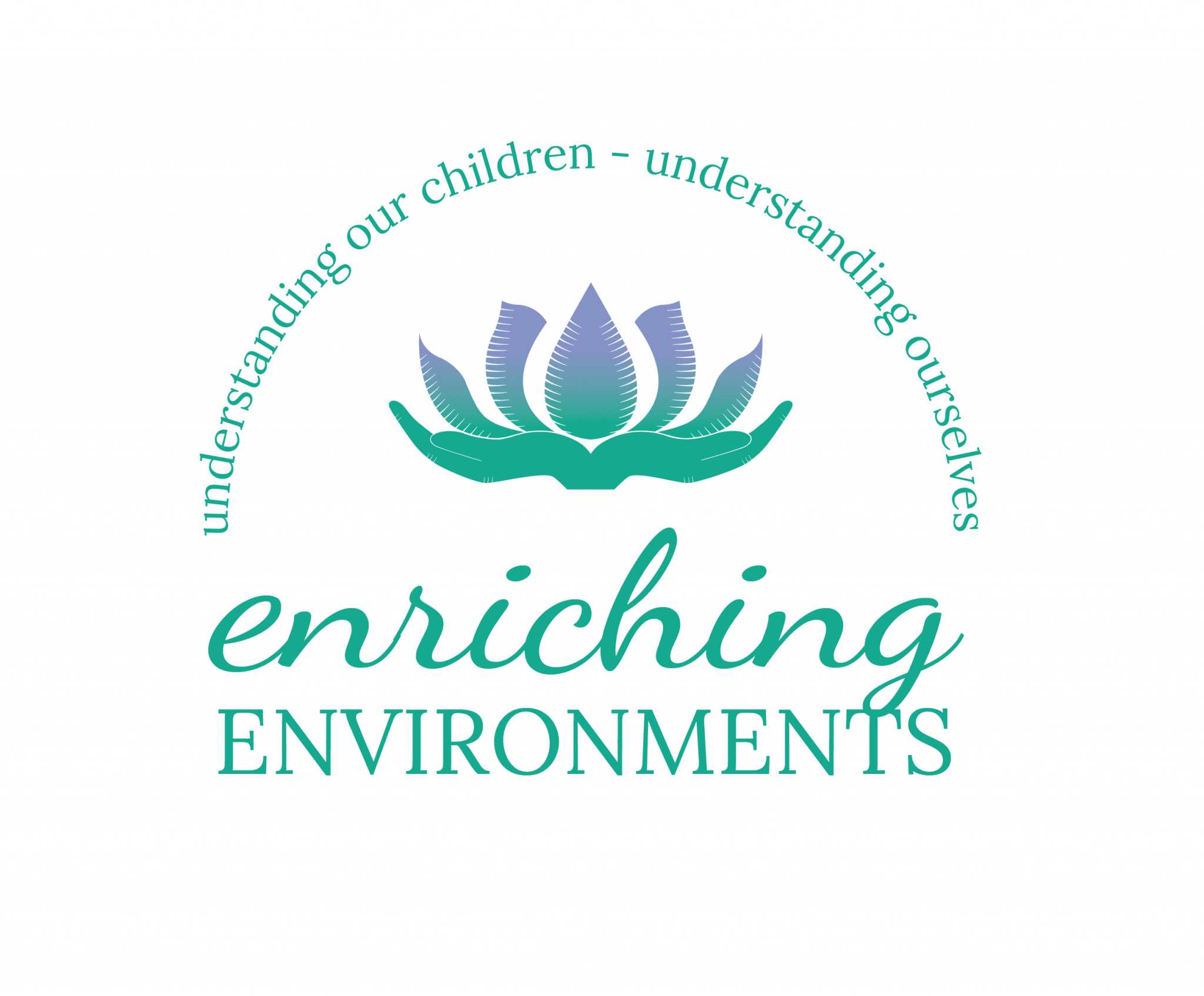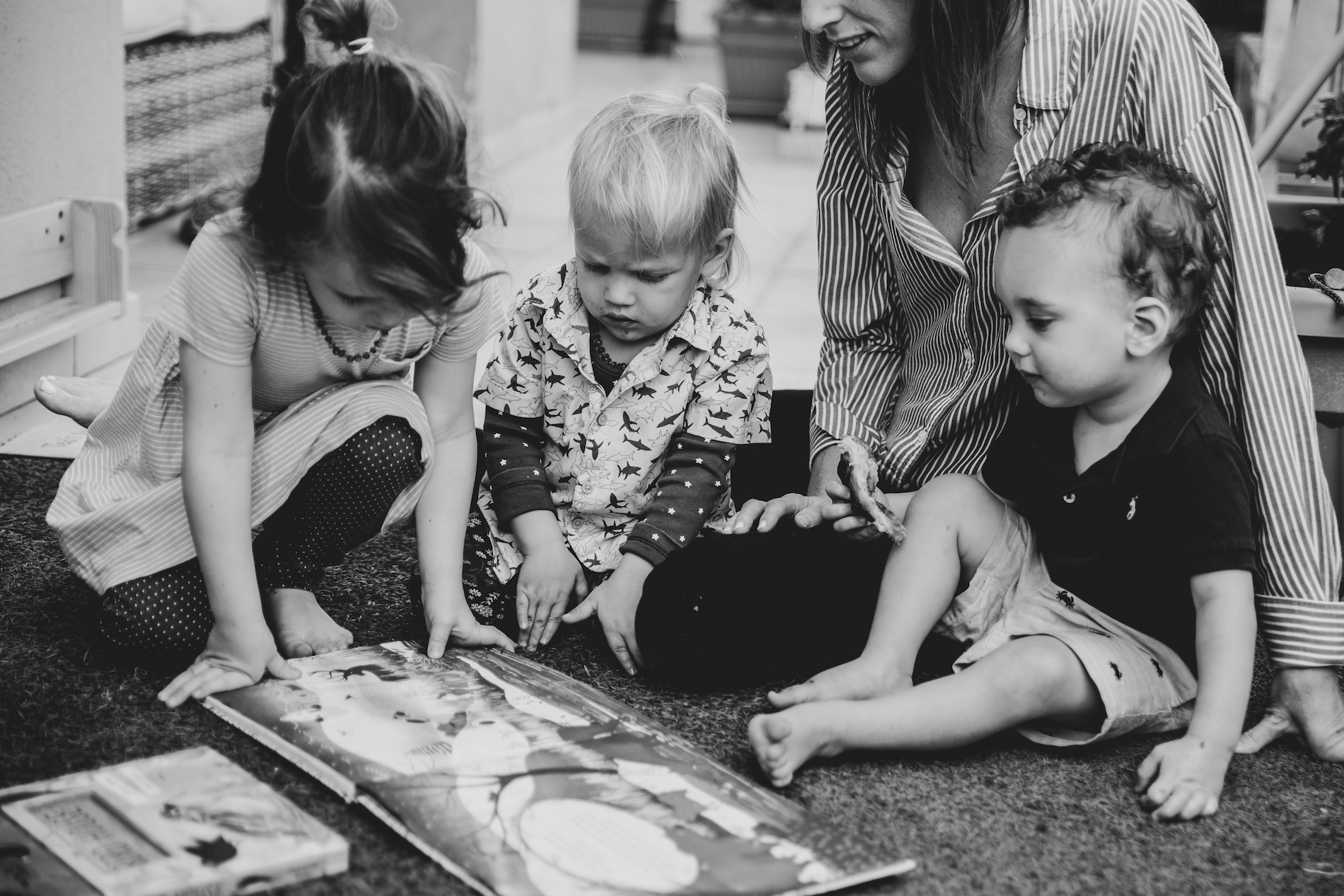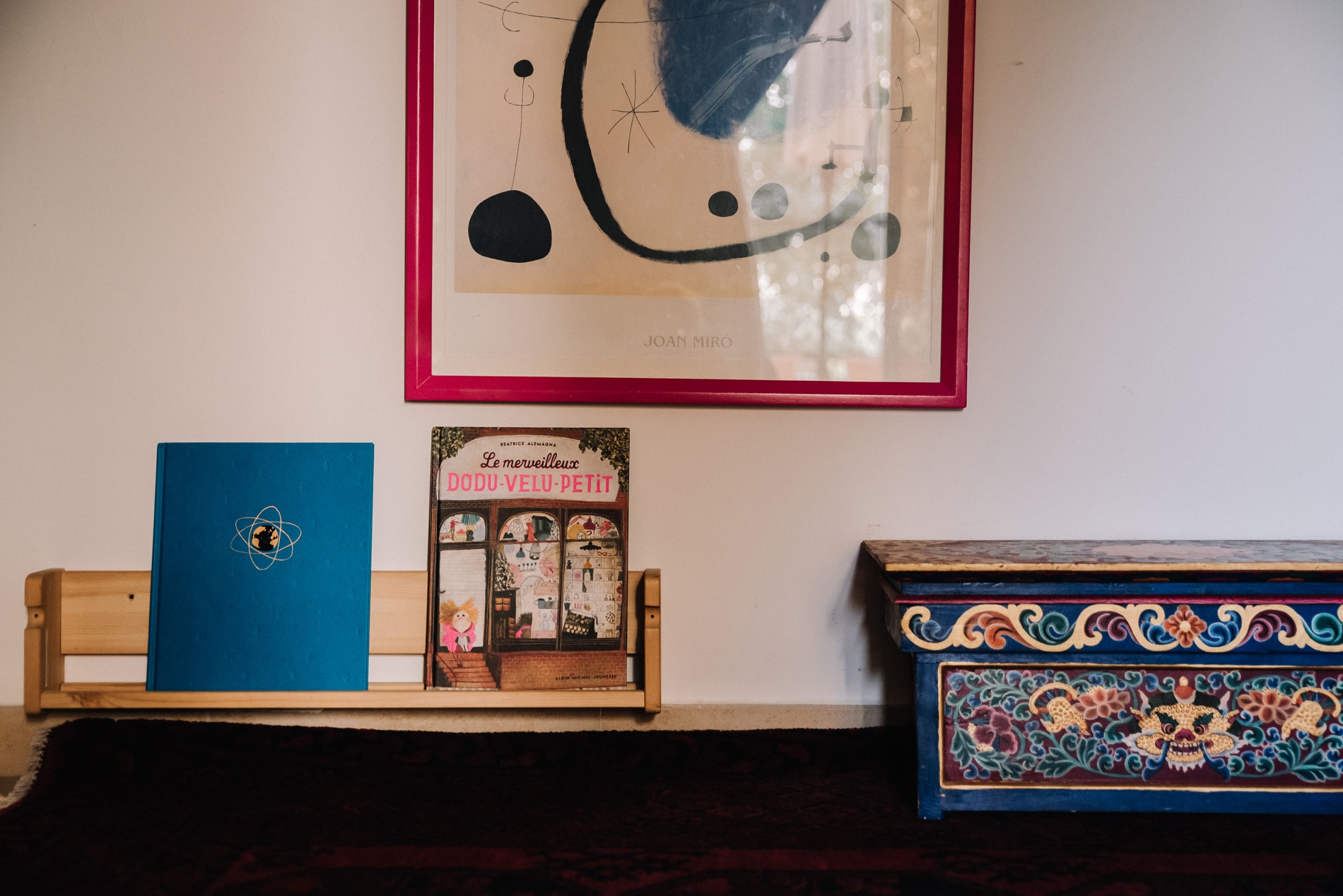In an Enriching Environment we immerse our child in rich, expressive language from the start.
Language gives humans the ability to communicate the concrete and the abstract: information on physical objects as well as thoughts and feelings.
A newborn baby cannot speak, however, by the age of six, our child will have developed 75% of her language skills. How does she achieve this remarkable feat?
The answer is in the child’s unconscious absorption of language (and many other skills) during the period of the Absorbent Mind from birth to six years. During this time, she cannot help but absorb the language and style of communication of those around her. This is why children effortlessly learn two or three or more languages in the early years!
Given that all of this language acquisition happens automatically from what the child hears in the environment around her, and that the critical period for language learning is until age 6, by which time 75% of language acquisition has taken place, what can we do as parents to facilitate this?
The foundations for language acquisition are laid in-utero since the structural development of the ear is complete by the end of the fifth month in-utero. It is imperative to talk and sing to your baby during pregnancy as this stimulates her brain and body. The sound of the mother’s voice is of particular importance during the final trimester. You can bathe your in-utero little one in your voice by reading stories, singing a favourite song or reciting a poem. Research shows that a familiar song sung regularly during pregnancy can calm a child after she is born. During pregnancy, set aside time every evening to sit quietly as a couple and sing your special family song to her.
Your newborn baby loves to study your face, see your lips move and watch your expressions. From the earliest weeks when you are cradling your baby you can have an early fun dialogue by sticking your tongue out at her or blinking your eyelids. Wait a few seconds, and she will respond by copying this.
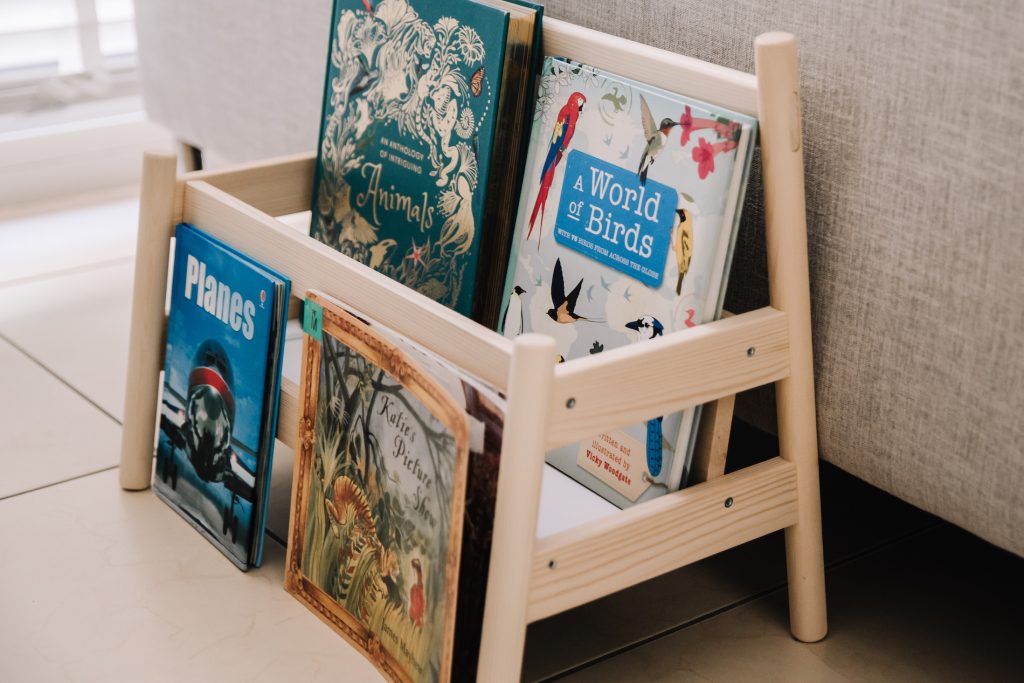
How to give your child the gift of rich language
Quite simply we must speak to our children using real language (not baby speak) from birth. Speak to them about the real, everyday things they see around them, helping them to make sense of their world. Talk through what you are doing as you change her, as you bathe her, as you put her in the car seat, as you settle down for a feed. All you need to do is hold her close all of the time and talk to her!
Babywearing is a gift for communication and language skills due to the proximity of the child to the parent. ‘Worn’ on your body, your baby hears the words being said, and is close enough to see your lips move as you speak. Simultaneously, she can also feel the nuances of the non-verbal communication through your body language. This gives you and your baby a unique bond of communication.
Submerge your child in rich, expressive language all of the time from the books that you choose to read to them. Select books with long and deliciously descriptive words, rhyming text and fun language that uses alliteration and onomatopoeia. Books with beautiful, detailed illustrations ensure that there is always something interesting to discuss besides the reading of the text.
During the early years, your child will ask for the same book to be read over and over again, endlessly in fact, so be sure to choose books that you like to read as well!
After a few months your newborn will start to show a preference in the books that you are reading to her. Offer her a choice of two to choose from whenever you sit down to read together. Notice which books she really enjoys and use this to inform your selection of books for the future. Does she love books about animals, or other children, or nature? Watch for clues that she gives to which topics she is really interested in.
Sing, sing and sing more! You don’t need to be a good singer (they love hearing you sing regardless of whether you are off key!) You can sing nursery rhymes or lullabies or anything that you enjoy. Fathers in particular seem to be adept at making up their own special songs for their babies. Singing seems to come naturally to us when our children are babies, but somewhere during the toddler years, we lose this habit of singing to them. Singing regularly should be continued throughout early childhood. A toddler will respond much more positively to a sung command than a spoken one!
Make poetry part of your daily life. Poetry offers the child the opportunity to hear language in another enriching format, in addition to stories and songs.
Where, during the day, could you think of including a ritual that provides a different use of rich language, like poetry or song? A poem before mealtime? A song when you get ready to leave the house? A nursery rhyme as you get in the car or wait for the bus? (For more on Rhythm and Rituals click here).
Five steps towards supporting language and communication:
1) 75% of language acquisition is before the age of six, so enriching language is crucial from the earliest days of your baby’s life.
2) Read, read and read more. Choose books with rich, interesting expressive language and beautiful illustrations.
3) Wear your child in the wrap/carrier often. When she is in the carrier talk to her about everything that you see, hear, and feel around you (unless of course she is trying to sleep, in which case, sing to her instead!)
4) Commit to reading poetry to her. Start with one poem to your child every day, perhaps at mealtime, when she settles into or awakes from a nap.
5) Sing, sing, sing to her: off key or in key, a made up song or a lullaby passed down for generations. Continue singing to her regularly throughout early childhood.
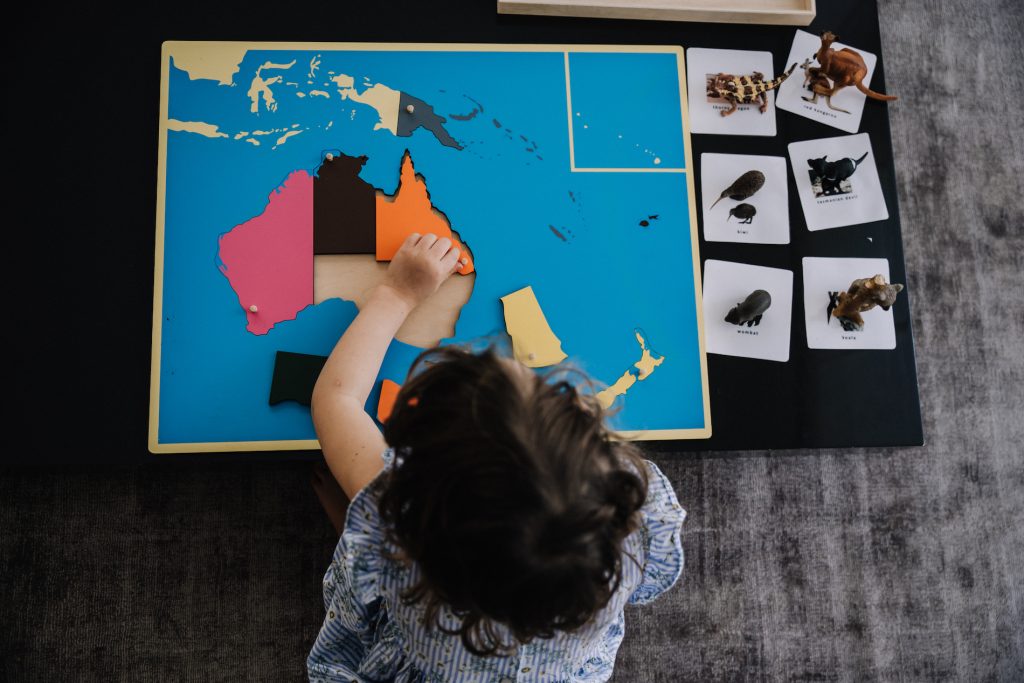
Similar Posts
- 17 September 2019 00:32
- 11 September 2019 17:50
- 9 September 2019 13:43
